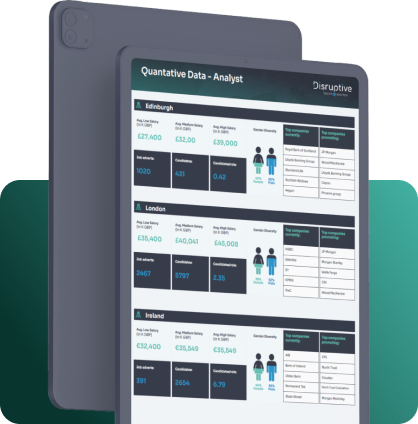Embodying leadership roles can be a challenge. When it comes to inspiring your team to think outside the box, leading with a creative mindset is one of the best ways to achieve results. On Episode 9 of The Disruptive Mindset Podcast we spoke to Nicolas Parmaksizian, the Global CEO at Designit, about how his creative outlook has changed the way he leads.
What’s the one misconception people have about your role?
The biggest misconception is that you need to be the best at something or a specialist in something to be a leader. However, having different experiences and being able to connect things from each of your roles is essential for seeing the big picture. The one thing that I do believe is important for leaders is the ability to coach others. The biggest misconception is that you need lots of specific experience behind you, but having a wide set of experiences and the ability to coach is actually far more important.
If somebody asked me to draw the path to being the leader of a creative organisation, I would say there isn’t a standard path. One common thread is a thirst for learning and the ability to translate that knowledge to your team. Building high performing teams is what earns you the right to run an organisation. We’re teaching business students the functions of running a business and not focussing on the softer skills that are instrumental to running a successful team. Leaders should understand their team on a personal level if they want to get the most out of them.
How are you developing creativity and analytical leadership at the same time?
I’m doing a doctorate, and my research is based on the ability to develop mental ambidexterity in leaders. What I mean by ambidexterity is this ability to explore and experiment while exploiting your situation. Leaders need to be great at managing, delivering and operationalizing risk. The human brain isn’t very good at thinking about tomorrow while delivering for today. As leaders though, we’re expected to do both. My vision for developing the next generation of leaders includes working with innovation teams around the world, identifying the challenges that are common across industries and training leaders to disrupt themselves by grasping these paradoxes in order to find creative solutions.
What are you most curious about or interested in at the moment?
I’m fascinated by recent changes in artificial intelligence and how it’s impacting the world of creativity and design. AI allows us to prototype new options and explore things that we might not have thought about before. We’re leveraging the power of technology and data through AI to broaden the spectrum of a designer. What I worry about is that this technology might start to narrow our frame of vision because we’re being fed the same content on a loop, so people’s minds aren’t being opened to new things. Curiosity and learning are essential for progress, and there is a danger that technology will ultimately kill off human creativity. Innovation comes from being exposed to a wide array of stimuli that triggers this creative process. AI gives us an opportunity to accelerate creative output in the short term, but in the longer term, there is also a danger of limiting ourselves by relying on these algorithms.
We’ve been making fun of how students are leveraging this technology to write their essays. I think that’s actually very serious, because the ability to think critically and compose new works is a skill that we should develop, not give up. Just because you’ve got technology that can do it faster, that doesn’t mean we should blindly embrace it. That’s one of the cases in which AI is actively killing our creativity.
How would you disrupt the culture of design?
Culture is an evolving thing. Sometimes an organisation can become a prisoner of its own culture. You shouldn’t think of it as an artefact that you’ve got on a shelf which you continuously polish and preserve. A culture needs to be evolved. The culture of Designit is anchored in values of shared progress and accountability. We’re hugely collaborative, which has led to us stepping from what we call ‘human centred’ to ‘humanity centred’, and thinking about the impact that we have, not only on this immediate audience, but the whole world and future generations. We’ve cultivated a deep sense of responsibility and accountability that permeates our entire culture.
To hear more about the work that Nicolas and the Designit team are doing, tune into The Disruptive Mindset Podcast on Spotify hereand Apple Podcasthere.


How Disruptive is your Leadership Hiring?
Find out where your management team’s weaknesses are and how you could improve your hiring strategies with this free 5 minute questionnaire.
Contact Us
"*" indicates required fields
